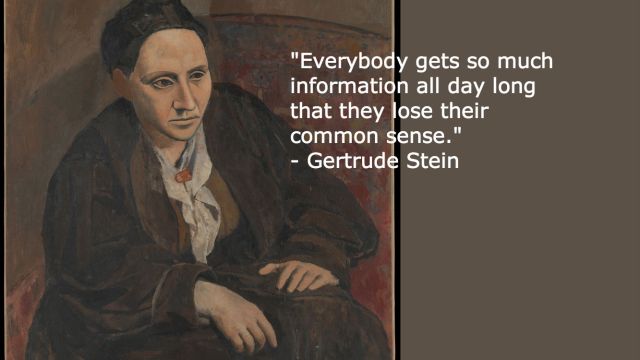Canada’s Complicity in the US Surveillance State
In Canadian political debate, accusing one’s opponent of advocating “American-style” policies used to be the equivalent of launching a nuclear missile.

Sign up for Big Think on Substack
The most surprising and impactful new stories delivered to your inbox every week, for free.
This article originally appeared in the National Post. You can read the original here.
In Canadian political debate, accusing one’s opponent of advocating “American-style” policies used to be the equivalent of launching a nuclear missile.
The trajectory of these attacks was usually left to right, with some earnest advocate of the Canadian welfare state blasting a heartless proponent of free markets and individual responsibility, as though a slight reduction in subsidies for public broadcasters or allowing citizens to pay out-of-pocket for medical expenses were one step removed from leaving the elderly on ice floes to die.
Much has changed in recent years, however. For one thing, the American health care system is now more beholden to the government than its “socialized” Canadian counterpart ever was. Relatedly, the ideological leadership of the countries has reversed. Whereas Liberal prime ministers like Pierre Trudeau and Jean Chretien once sat opposite Republican presidents like Ronald Reagan and George W. Bush, Canada now has its most right-wing prime minister in at least a generation, while the United States is in the second term of arguably the most left-wing president in its history.
But one issue on which an ostensible rightist like Prime Minister Stephen Harper and an unapologetic leftist like President Barack Obama seem to agree is that the surveillance capacity of the state must know no limits, citizens of both countries must be constantly tracked and monitored, and the two governments must synchronize their efforts in this regard.
If ever there was a time when Canada should act on its aversion to “American-style” policies, this is it.
From banking to taxes to travel to personal communications, Canada has signed on to the most appalling excesses of America’s growing surveillance state. The rationale is usually found among the catch-all phrases deployed to justify today’s creeping totalitarianism: the “War on Terror” or “keeping us safe” or the “War on Drugs” or “money laundering” or “tax evasion.”
Whatever the stated reason, such policies are born of the institutional panic that someone, somewhere, is doing something the government doesn’t know about and has not had the chance to regulate, mandate or ban.
Most recently, CTV News reports, the Canadian and American governments have agreed to compile a shared, biographic database of residents’ border-crossings, starting this June. The new system will be used to verify eligibility for Medicare and other benefits (and, of course, will “combat terrorism”), but it evinces Canada’s disquieting modern tendency to surrender its citizens’ information to a rapacious US government. It is most certainly an “American-style” presumption that people need to be watched at all times, their communications monitored, their comings and goings tracked and recorded.
This accompanies revelations by National Security Agency whistleblower Edward Snowden that Canada’s electronic spy agency, in conjunction with the NSA, has used Canadian airport Internet service to track the wireless devices of thousands of travelers for days after they left the terminal.
The freedom to travel has been one of the most conspicuous casualties of the US “War on Terror” and Canada should be ashamed of its complicity. In response to edicts issued by the Obama administration, Canadian travelers are subjected to a homegrown version of the pornographic fraud that is American airport security.
(As to Snowden, they want to fry this kid for breaking the first two rules of Fight Club, but he has done more to preserve the cause of freedom than those who get paid to snoop on their fellow citizens.)
Canadians need not travel to become entangled in the web of US surveillance. Canada’s acquiescence to America’s Foreign Accounts Tax Compliance Act (FACTA) will see to that.
Beginning on July 1 (ironically, Canada Day), Canadian banks and financial institutions will be required to review all client accounts containing $50,000 or more to determine if they are “US Reportable.”
This transcends the infamous and larcenous practice of the Internal Revenue Service demanding tax returns and payments from “US persons” worldwide. Under the FATCA regime, not only will US Persons (broadly and capriciously defined by the US Treasury) be required to file taxes with the IRS even if they have never set foot on US soil, their assets must be reported to American authorities.
The closest Canada has come to effective resistance is a meaningless bureaucratic tweak: rather than report directly to the IRS, Canadian banks would report to the Canadian tax authority, which then forwards the information to its American counterpart.
In each of these cases, Canada has gone along through a national self-interest no more considered than, simply, the United States said so.
Canada and the United States enjoy the largest bilateral trading relationship in the history of the planet. It is in the interests of both countries to keep that going. Canada, as a resource-rich, exporter nation, enjoys unique access to the largest consumer market in the world.
Nevertheless, economic comity is not everything, and there would be much to be said for a prime minster who, like Hugh Grant at the end of Love Actually, has the courage to stand up and announce he is unhappy with important aspects of the relationship.
Can such leadership be found, or has Canada made peace with an “American-style” future?
Theo Caldwell, an investor and broadcaster, is a dual citizen of Canada and the United States. He can be contacted at theo@theocaldwell.com
Sign up for Big Think on Substack
The most surprising and impactful new stories delivered to your inbox every week, for free.




